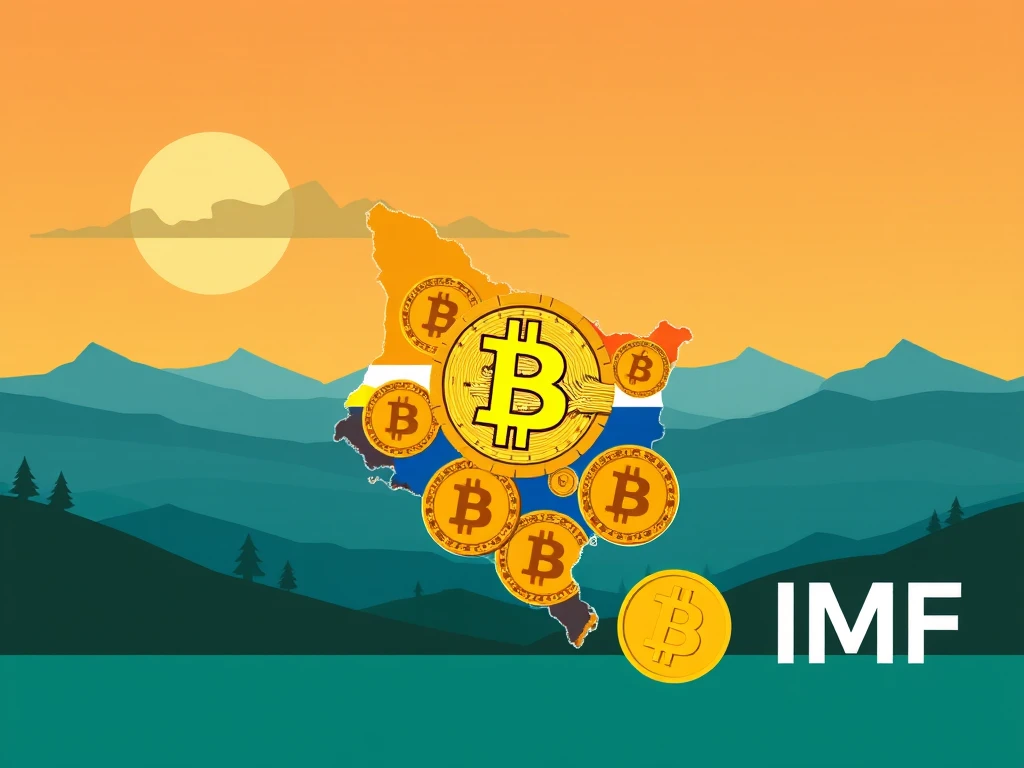El Salvador Bitcoin: IMF Deal, $120M Payout Sparks Fresh Accumulation Defiance

The relationship between global financial institutions and countries embracing Bitcoin continues to evolve, often presenting fascinating conflicts. A recent development involving El Salvador and the International Monetary Fund (IMF) highlights this tension, particularly concerning El Salvador Bitcoin policy and future acquisitions.
IMF El Salvador Agreement and Conditions
The International Monetary Fund recently announced a significant step forward with El Salvador, reaching an agreement to disburse $120 million. This payment follows an initial review of a larger $1.4 billion loan deal established last year. However, this financial lifeline comes with specific conditions regarding El Salvador’s involvement with Bitcoin.
- El Salvador must limit further government engagement in Bitcoin.
- Efforts are required to keep the total amount of Bitcoin in government wallets unchanged.
- The country needs to cease its involvement in the Chivo wallet operation by the end of July.
This stance from the IMF is not new. The global lender has repeatedly advised El Salvador against accumulating Bitcoin, emphasizing concerns about financial stability and consumer protection.
Bitcoin Accumulation Continues Despite IMF Requests
Despite the IMF’s clear conditions, El Salvador appears set on its path of Bitcoin accumulation. Shortly after the IMF’s May 27 announcement, El Salvador’s official Bitcoin Office confirmed another purchase. This action directly challenges the IMF’s request for the country to limit its Bitcoin holdings.
President Nayib Bukele has publicly stated his government’s commitment to acquiring one Bitcoin per day as part of their long-term treasury strategy. The country’s official tracker shows consistent buying activity, with 30 BTC added in the last 30 days. As of recent reports, El Salvador’s total Bitcoin reserve stands at over 6,190 BTC.
El Salvador Crypto Strategy Yields Profit
The ongoing El Salvador crypto strategy, while facing international scrutiny, has shown significant unrealized gains. President Bukele recently shared that the nation’s Bitcoin treasury holds an unrealized profit exceeding $386 million, representing a substantial return on investment.
This profitability likely strengthens the government’s resolve to continue its Bitcoin policy, even when it conflicts with the requirements of lenders like the IMF. Experts have speculated on how El Salvador might technically comply with loan conditions while still adding to its Bitcoin reserves, suggesting methods like using non-government entities for purchases.
Understanding the Bukele Bitcoin Strategy
President Bukele’s Bukele Bitcoin strategy is a bold move positioning El Salvador as a pioneer in national Bitcoin adoption. It involves making Bitcoin legal tender, encouraging its use, and accumulating it as a state asset. This approach is driven by a vision of financial inclusion, attracting investment, and potentially hedging against traditional economic instability.
The tension with the IMF highlights the challenges and risks associated with this strategy. While profitable in current market conditions, the volatility of Bitcoin remains a concern for international financial bodies. El Salvador’s ability to navigate these pressures while pursuing its unique economic path will be closely watched globally.
Summary
El Salvador has secured a $120 million payment from the IMF but faces renewed pressure to curb its government Bitcoin purchases and involvement with the Chivo wallet. Despite these conditions, the country continues its strategy of daily Bitcoin accumulation, which has recently shown significant unrealized profits. This ongoing defiance of IMF recommendations underscores El Salvador’s commitment to its pioneering Bitcoin path, setting up a fascinating dynamic between national crypto adoption and global financial governance.










